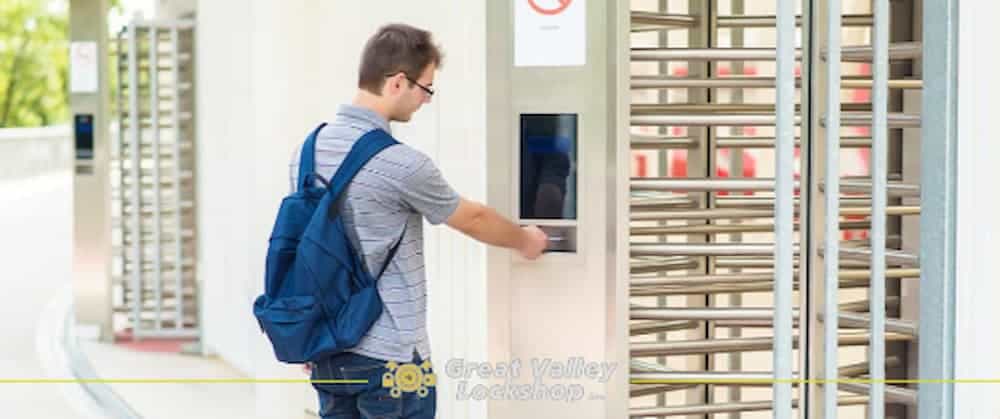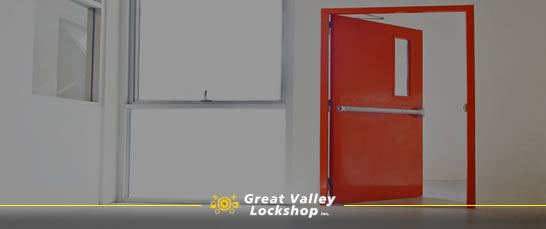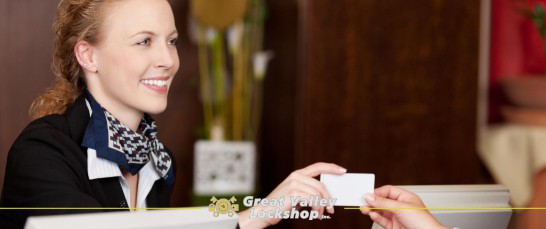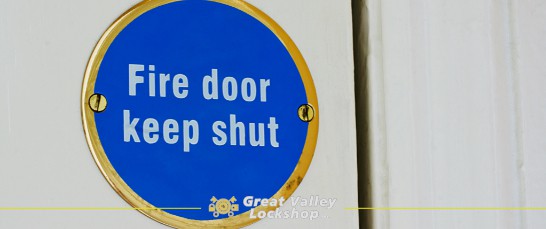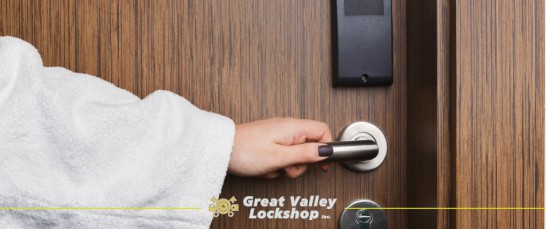
Why Is Hotel Security Important? Common Issues & Solutions
Hotel security is one of the important aspects of hospitality business management. This works for any type of hotel, lodging, and entertainment facility, as we all as in the tourism industry. Having a foolproof hotel security management system will protect everyone in the hotel, including the staff and guests.
So, whose responsibility is it to implement hotel security? What does it involve? Everyone engaged in the hospitality business is required to implement hotel security. This includes a comprehensive set of hotel security procedures and measures that can be implemented to safeguard the well-being of everyone in the hotel.
In general, the responsibility to implement hotel security falls among the management while the security personnel are in charge of executing them. For instance, installing security cameras in strategic areas all around the hotel premises, especially indoors and through the common areas will help capture criminal activities or gather evidence in case of accidents. Another way to secure hotels is to restrict entry to authorized personnel only or manage entry to guest rooms by using RFID cards or using electronic locks to secure staff-only areas.
In this article, we will provide you with a deeper understanding of hotel security management and your responsibility as a hotel owner.
5 Common Hotel Safety & Security Issues
Owners of hospitality businesses face a range of security issues such as unauthorized access, theft, and even homicides. Room invasions are a significant security issue for hotels too. Addressing these issues head-on is the best way to bolster security in hotels and protect the staff and guests. The following are the five most common hotel safety and security issues that you should know as a hotel owner.
Unauthorized Guests
Unauthorized guests are those that enter hotel rooms even when they are not officially checked in. They pose a threat to hotel security because they’re hard to track in case of an accident. Their intentions are also unclear and not knowing how many people are on-site can make it difficult for hotels to comply with safety regulations.
Possible solutions to this issue:
- Hiring security professionals to guard the entrance and having a receptionist to monitor check-ins
- Installing an access control system to restrict unauthorized entry to the premises
- Installing smart camera systems to monitor guests that are coming in and out
Antisocial Guest Behavior
In a study published by Harvard Business Review, more or less 90% of individuals who work in the hospitability business have experienced violence within the workplace, including sexual harassment. Other anti-social guest behavior include vandalism, theft, and altercations with other guests especially when using the common areas in the hotel. It’s not unusual to find guests encountering petty fights with other guests or having arguments with hotel staff. Conversely, staff may also engage in undesirable acts towards other workers, which can result in violence in the hotel.
Possible solutions for these situations can include:
- Installing hotel room security devices such as smart locks, alarms, or panic buttons
- Training staff in de-escalation and conflict resolution strategies
- Training security personnel to spot suspicious guests
- Installing hotel security cameras in high-traffic areas including the pool area, living area, lobby, and the restaurant
Employee Safety Concerns
Hotel employees are vulnerable to a lot of potential injuries and safety concerns because they are mostly on the frontline. Many people working in the sector, especially those who are in the casinos, bars, and restaurants don’t feel safe enough. They are alway worried if some of the guests suddenly get too drunk and start a fight with other guests. That is why hotel owners must pay attention to safety concerns.
Ways to address employee safety concerns include:
- Listening to specific employee safety concerns
- Considering employing additional security personnel to cover the entire area
- Getting wireless panic buttons for moving staff
Data Privacy
Cybersecurity breaches are becoming a prevalent issue for many hotel businesses. In 2020 alone, data breaches in the hotel business in the United States have reached $8.64 million. This happens because hotels need to collect information for security which can be very personal such as your name, phone number, and address. While this information is crucial for your checkin and for security purposes, it can be stored in a database which can be a target for hackers. Hackers can potentially breach online databases and steal data for personal use. For instance, hackers can get personal credit card information of guests and use it to squander in online shopping platforms, buying personal stuff without their knowledge.
Ways to improve online data security in hotels:
- Update your firewall and install high-level internet security software
- Organize an in-house online security department especially for big hotel chains
- Make sure your Wi-Fi network is secured
- Keep abreast with the latest cybersecurity issues and plan ahead
Theft
Theft and robbery are one of the most common incidents in hotels. In the hotel restaurant sector alone, there has been an estimated cost of $3 billion to $6 billion loss caused by theft or robbery every year. The large number of cash transactions in hotel businesses put them at risk of this type of crime. Most of the crimes are just done by insiders while some by unauthorized guests. The sad news is that many of these crimes often go undetected and unsolved for many unknown reasons. Even with security cameras, investigators still find it hard to catch culprits.
Moreover, thieves have become smarter nowadays. They’ve learned various hotel room security hacks that allow them to enter without being caught and take whatever they can from guests. In today’s modern world, hotel owners should take action in order to be one step ahead of potential thieves and robbers.
There are several steps that hotel businesses can take to reduce the number of theft incidents such as the following:
- Promoting cashless transactions
- Installing security cameras in strategic places in hotels
- Promoting credit card sales over cash transactions
How do you ensure guest safety and security?
Hotel and hospitality businesses do come with a certain level of risk, considering the different people who check-in and out every day and the cash transactions involved in their daily operations. Thus, it is only a must for hotel owners to enhance surveillance and security
Installing Surveillance Cameras
Ensuring guest safety and security can be done in several ways. One way to ensure safety is to install surveillance cameras. Nowadays, there are a range of security camera options you can find in the market. However, it is worth noting that every hotel has unique requirements. Finding a suitable camera, whether it is a smart camera or a 360 camera is crucial for your goal.
Upgrading Security Locks
Another way to ensure safety is to upgrade locks in hotel rooms and enhance security to access restricted areas such as maintenance rooms, back-of-house areas, executive areas, and surveillance rooms. When choosing locks, it is always wise to consider the needs of your business. Bigger hotel chains may adhere to specific lock standards for all their hotel rooms regardless of the country they are built. Some require more expensive, yet high-level security systems such as using electronic key card systems, RFIDs, or audit trails. On the other hand, smaller hotels and even motels may also reap bigger benefits with the security that smart locks and RFID security systems can offer. Here at Grand Valley Lock Shop, you can find the best solution for your hotel security.
Top Security Tools And Devices Hotels Must Invest
Hotel Security Cameras
Hotel security cameras can provide guests and employees with an added layer of security and prevent potential crimes from occurring. Considering their ability to capture real-time happenings, culprits would have hesitations in pursuing dangerous activities in the hotels because the footage from the security cameras could be used as evidence against them.
Installing security cameras can also add to your hotel’s overall reputation by promoting a sense of safety and transparency for both guests and employees. Hotels must consider the following areas when mounting cameras:
- Elevators
- Stairwells
- Hallways
- Outdoor spaces like patios or walking paths
- Recreational spaces like gyms, pool areas, and more
- Ice and vending machine areas
- Lobbies and verandas
- Restaurants, cafes, and other eating areas
- Laundry facilities
The following are some popular cameras you want to consider:
- Bullet cameras – These are cylindrical shaped cameras that are usually placed in hotel entrances, hallways, and entrances to capture moving people.
- Dome cameras – Shaped like a dome, these cameras function like bullet cameras which are also placed in high-traffic areas to capture people coming in and out of the hotel.
- Covert cameras – Also known as hidden cameras, these are security cameras disguised in different objects to stay hidden. They can appear like smoke detectors, wall decorations, or even clocks.
- Thermal cameras – These types of cameras can detect body heat rather than capture pictures, and are better suited in monitoring intruders in areas with poor visibility.
- Vandal-resistant cameras – These are perfect options in spaces with a higher risk of damage or intentional interference such as in the hotel bar or poolside area.
- Audio-enabled cameras – These cameras are different from traditional surveillance cameras in a way they can detect sound, which will consequently allow the receiver to hear conversations.
Hotel Security Locks
Hotel security locks are important security tools and devices. They are not only a matter of safety for hotel guests but also a smart financial decision for hotel establishments. There are many kinds of hotel security locks. There are traditional locks, smart locks, and electronic locks. Today, many hotels use Magstripe or magnetic stripe locks, which function when a card with matching information is swiped or inserted into the system.
Another popular lock is called RFID (radio frequency identification), which utilizes data in a chip. It’s a type of keyless entry that allows guests to tap their cards into the lock system of their hotel rooms to gain entry. On the other hand, hotels with self-check-in services use pin code locks, which can automate code quickly. It is also a type of keyless entry where guests are given a unique combination of codes to gain access to their rooms.
Other Types Of Security Locks For Hotels
The following are other types of lock systems that you may consider:
- Biometric locks: These types of locks use fingerprints and facial recognition for guests to gain entry into their rooms. While they are secure, they are also expensive to implement.
- Wireless lock systems: Just as the name says, these types of locks allow guests to gain access to their rooms without keys and monitor room access remotely.
- Remote lock systems: These are better utilized for restricted rooms in hotels or vaults with highly sensitive data. These types of locks can be controlled and managed remotely using a central control unit..
Prioritizing Safety Of Guests And Employees In Hotels
Having high-level security in your hotel can minimize the risk of costly incidents and legal liabilities. Although the upfront investment might seem significant, the potential losses from compromised guest safety and subsequent reputation damage can overcome these costs. Hotel owners must allocate resources to invest in reliable security locks that will ultimately contribute to a more secure hotel environment.
We have a range of hotel security lock systems that you can choose from depending on your needs. We’ve been providing the best selection of security locks for various hotel chains and other hospitality businesses in the country. Our goal is to help businesses ensure a safe and secure environment for their staff and guests. You can also request a free quote for more information regarding a specific lock system.
FAQ
-
-
What is hotel security?
Hotel security refers to the measures that hotels take to safeguard the security of staff and guests within their premises. This includes training staff with conflict resolution strategies, installing surveillance systems to monitor suspicious activities in the hotel, and installing locks to secure guests in their rooms.
-
Who is responsible for hotel security?
The hotel management is generally responsible for hotel security. One way to make sure that the hotel is reasonably safe for guests is to employ qualified security officers who take care of safeguarding hotel property, assets, staff, and guests. Other ways to secure hotel premises and keep everyone safe are to make sure all doors have their proper locks and to install CCTV cameras in strategic places.
-
Should a hotel have security?
Yes. Every hotel big or small must have security measures in place. Hotels accommodate a diverse range of guests from different places, hence as a hotel owner you must prioritize their safety and well-being. It is crucial to have protocols in preventing unauthorized access to guest areas and respond quickly to any emergencies or disturbances.
-
Why is security important in a 5 star hotel?
Five-star hotels not only have a reputation to maintain but guests also have higher expectations of the level of service and security they can give. Having high-level security can add up to guest experience and trust towards the hotel. These measures can include security personnel, surveillance cameras, access controls, and alarm systems. Overall, hotel security can help create a welcoming and secure atmosphere for guests and staff ultimately contributing to the overall success of the hotel.
-
What is a security system for hotels?
A security system for hotels refers to a comprehensive set of rules and technologies used to make sure guests and employees in the hotel are safe. It also aims to safeguard assets and overall property from crimes and other potential damages caused by natural occurrences such as fire or flood.
-
What are the two important goals of the hotel security department?
The two important goals of a security department are to secure guests and employees and protect valuable assets bot of the guests and the hotel.
-
How can hotels improve security?
Hotels can improve their security system by implementing a multifaceted approach that combines highly trained personnel, foolproof emergency protocols, and technology. For instance, upgrading locks in hotel rooms and implementing access control systems such as keycards and biometric scans will increase security in exclusive areas. Trained personnel should also be positioned at strategic places that ensure visible presence and immediate response to emergencies. It is also advisable to conduct regular enhancement training for employees and collaborate with law enforcement offices regarding safety.
-
